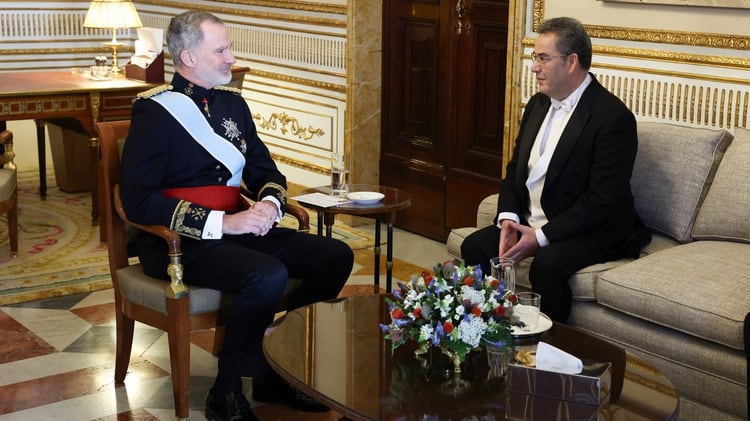Eduardo González
A total of 80 people attend to the more than 138,000 applications for Spanish nationality presented at the Consulates General of Buenos Aires, Caracas, Havana and Mexico in application of the Democratic Memory Law (popularly known as the “Grandchildren Law”), which It came into effect in October 2022.
The four Consulates have received, from October 2022 until January 31, a total of 138,118 nationality applications under the eighth Additional Provision of the law, according to the Ministry of Foreign Affairs responded to four written questions from the Parliamentary Group Popular in Congress regarding the number of applications for Spanish nationality presented through these Consulates under the 2022 law and the “number and type of personnel contract that handles these applications.”
Specifically, the Consulate General of Spain in Buenos Aires has received a total of 61,082 applications to acquire Spanish nationality and the total number of local staff that handles applications in this consular office is 27 people. Additionally, 36,117 applications have been submitted to the Consulate General of Spain in Havana and the local staff in charge of this is made up of 30 people; At the Consulate General of Spain in Mexico City, a total of 29,079 applications for Spanish nationality have been submitted and the total number of local staff is thirteen people; and, finally, the Consulate in Caracas has received 11,840 applications and the local staff available for this is only ten people.
In all four cases, local personnel includes additional personnel hired for this work. Additionally, in the four Consulates the Consul General and the Deputy Consul must be added, who have, among their daily tasks, the management and resolution of these files.
As of December 31, 2023, a total of 226,000 people applied for nationality around the world through the Democratic Memory Law, of which around 110,000 obtained citizenship, as reported in mid-February by representatives of the administration during a meeting with the General Council of Spanish Citizenship Abroad (CGCEE).
The same sources, cited by the specialized digital newspaper Crónicas de la Emigración, warned of the shortage of personnel in the consular network to attend to these and other needs. Around those same dates, the CGCEE asked the Council of Ministers for an extension to the application of the eighth Additional Provision of the Law due to “the saturation” in “general consulates that are underfunded for this process.” Finally, the Minister of Territorial Policy and Democratic Memory, Ángel Víctor Torres, announced on February 29 that the deadline to apply for Spanish nationality will be extended one more year, until the end of 2025.
The Democratic Memory Law allows access to Spanish nationality to people who were not eligible between 2008 and 2011 under the Historical Memory Law. The new one also includes other option cases, such as that of sons and daughters born abroad of Spanish women who lost their nationality by marrying foreigners before the entry into force of the 1978 Constitution; or the adult sons and daughters of those Spaniards whose nationality has been recognized through the Historical Memory Law and the Democratic Memory Law. The law established a period of two years, from its entry into force, to carry out the processing, although there is the possibility of a one-year extension if the Council of Ministers so agrees at the end of the first two years.
With the previous Historical Memory Law, approved in 2007 by the Government of José Luis Rodríguez Zapatero, around 250,0000 descendants of exiles from Franco’s regime were nationalized, especially in the consulates of France, Mexico, Argentina, Venezuela and Cuba. When the current law was approved, several media outlets close to emigration estimated between 200,000 and 300,000 the number of children and grandchildren of emigrants who could benefit from the new norm in Argentina, Cuba and Mexico.







